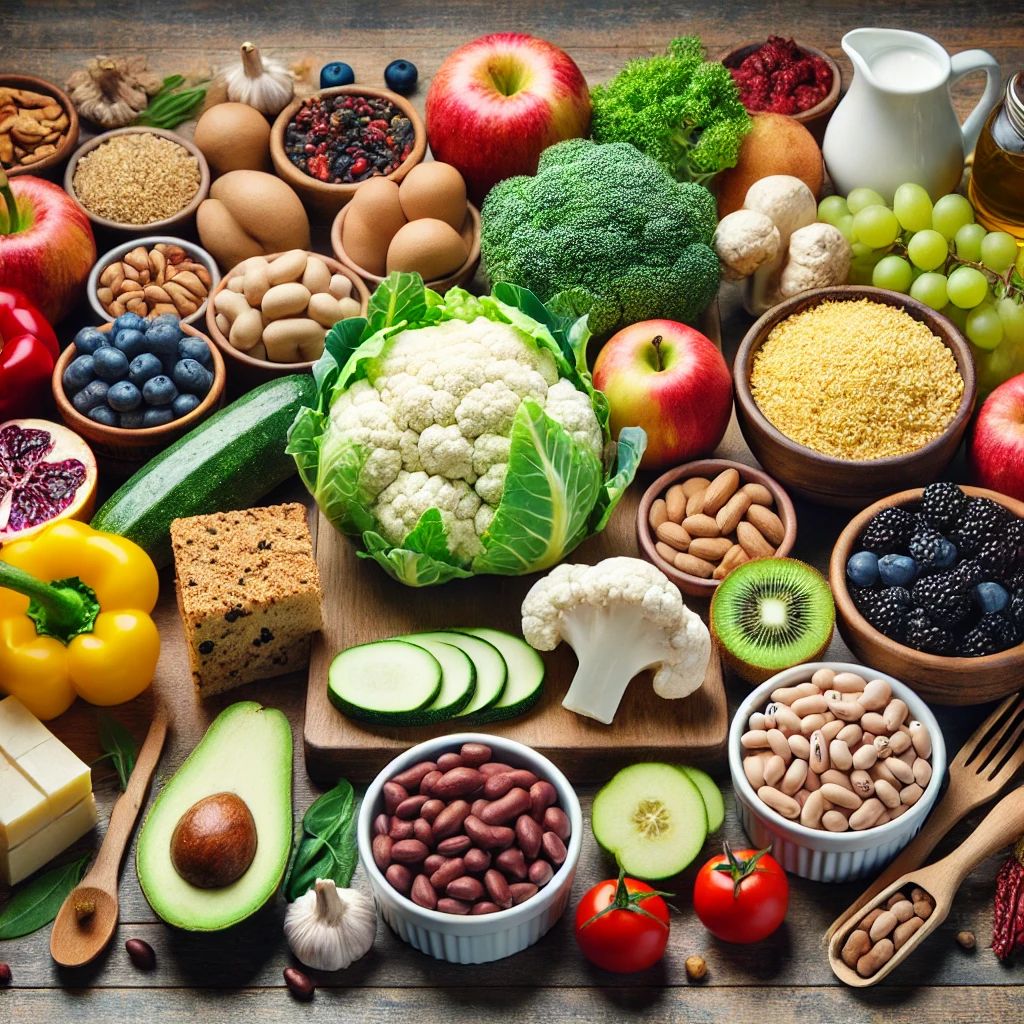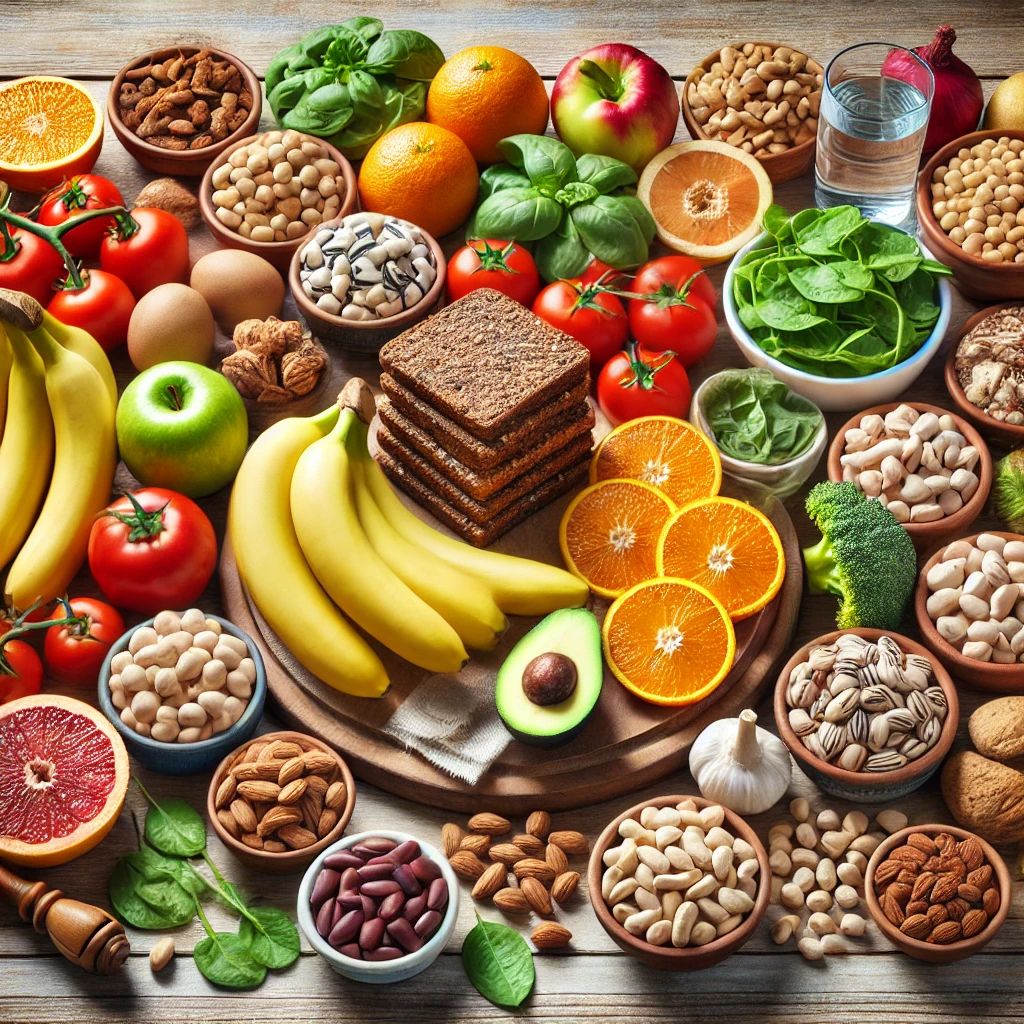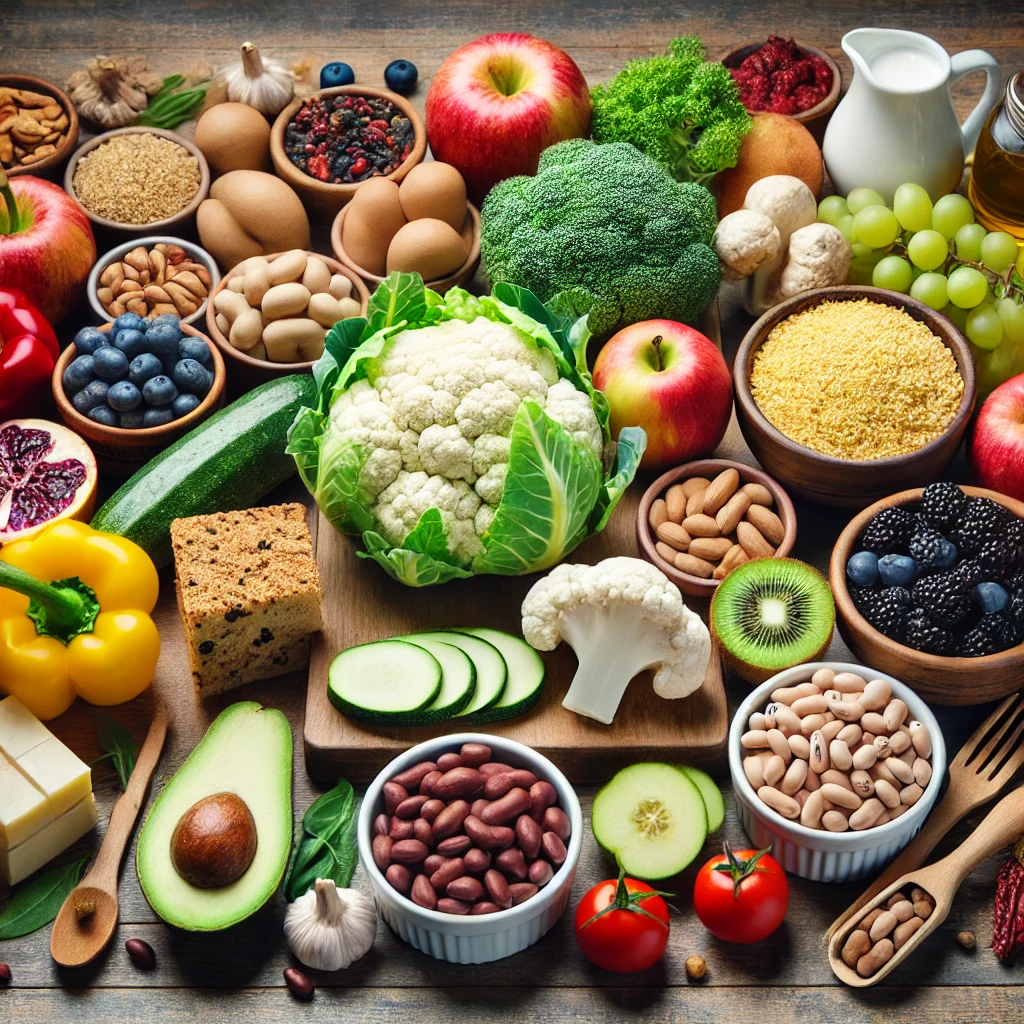A vegetarian diet can be an effective tool for managing chronic kidney disease (CKD). By limiting the intake of protein, phosphorus, and potassium—nutrients that are challenging for impaired kidneys to process—a vegetarian diet helps reduce the strain on the kidneys, slows disease progression, and improves overall health. This diet focuses on plant-based foods that are lower in these key nutrients while still providing the necessary vitamins and minerals for a balanced diet. In this guide, we’ll explore the benefits of a vegetarian diet for CKD, along with practical food choices and tips for managing the condition through nutrition.
Why Is a Vegetarian Diet Beneficial for CKD?
Chronic kidney disease affects the body’s ability to filter and eliminate waste from the blood. As kidney function declines, it becomes more difficult for the body to process certain nutrients, especially protein, phosphorus, and potassium. A vegetarian diet, emphasizing plant-based foods, can reduce the intake of these nutrients, easing the strain on the kidneys.
Reduced Protein Intake: Protein produces waste products that the kidneys must filter. Excessive protein can overwork the kidneys, which is why controlled protein intake is essential for CKD management. Plant-based proteins (such as beans, lentils, and tofu) are generally easier on the kidneys compared to animal-based proteins.
Lower Phosphorus Levels: Phosphorus, found in many animal products, is difficult for damaged kidneys to eliminate. High phosphorus levels can lead to bone and heart problems. Plant-based phosphorus is less absorbable, making it a safer option for CKD patients.
Controlled Potassium Intake: Many plant-based foods contain potassium, which can build up in the blood if kidneys are not functioning properly. Choosing low-potassium fruits and vegetables can help manage potassium levels and prevent complications such as heart issues.
According to the National Kidney Foundation (NKF), a balanced diet tailored to CKD can improve kidney function, manage blood pressure, and reduce the risk of further complications.
Foods to Include in a Vegetarian Diet for CKD
When following a vegetarian diet for CKD, it’s important to focus on foods that are low in phosphorus and potassium, while still providing essential nutrients. Here are some food choices to consider:
Low-Protein, Kidney-Friendly Proteins:
Tofu
Tempeh
Small portions of beans and lentils (in moderation due to potassium)
Unsalted nuts (in small amounts)
Plant-based protein powders (if needed, under medical guidance)
Low-Potassium Vegetables:
Cabbage
Cauliflower
Green beans
Carrots
Zucchini
Bell peppers
Cucumbers
Low-Potassium Fruits:
Apples
Grapes
Berries (strawberries, blueberries, raspberries)
Pineapple
Pears
Whole Grains (in moderation): Whole grains provide energy, but can be high in phosphorus. Focus on grains like:
White rice (lower in phosphorus than brown rice)
Couscous
Quinoa (in small amounts)
Pasta
Healthy Fats:
Olive oil
Flaxseed oil
Avocados (in moderation due to potassium)
Herbs and Spices: These add flavor without increasing sodium or potassium levels:
Garlic
Basil
Rosemary
Parsley

Foods to Avoid or Limit
Certain plant-based foods are high in phosphorus, potassium, or protein and should be avoided or consumed in limited quantities:
High-Phosphorus Foods:
Legumes (beans, chickpeas, lentils) – limit or consume in small portions
Nuts and seeds
Whole grain breads and cereals
Soy milk and other soy-based products (except tofu and tempeh in small portions)
High-Potassium Foods:
Bananas
Oranges and orange juice
Potatoes
Tomatoes
Spinach
Dried fruits (such as raisins or dates)
High-Protein Plant Foods:
Large portions of legumes
Seitan (wheat gluten)
Protein-rich snacks like energy bars (especially those high in soy or nuts)

Tips for Managing CKD on a Vegetarian Diet
Managing CKD through diet requires careful planning, especially when following a vegetarian lifestyle. Here are some tips for creating a balanced diet:
Monitor Protein Intake: Work with a healthcare provider or dietitian to determine the right amount of protein for your needs. Plant-based proteins are generally better for CKD patients, but portion sizes must be controlled.
Limit Phosphorus Additives: Avoid processed foods and drinks that contain phosphorus additives, as these are easily absorbed and can cause kidney problems.
Track Potassium Intake: Be mindful of high-potassium foods, and if needed, choose low-potassium alternatives or use techniques like boiling vegetables to reduce potassium levels.
Stay Hydrated: Drinking water helps flush waste from the body, but the amount should be adjusted according to your level of kidney function.
A vegetarian diet can be an excellent way to manage chronic kidney disease. By carefully selecting plant-based foods that are low in protein, phosphorus, and potassium, this diet can help reduce the burden on the kidneys and improve overall health. It’s always recommended to work with a dietitian or healthcare provider to create a diet that’s tailored to your specific needs.
For more information on managing CKD through diet, visit the National Kidney Foundation.
For more health topics, check out our Health Journal and Nutrition.
1.Suggested Breakfast
2.Suggested Lunch
3.Suggested Dinner
Disclaimer: The information provided about this dietary regime is for educational and informational purposes only. It is not intended to replace professional medical advice, diagnosis, or treatment. While special dietary regimes may offer benefits for certain individuals, individual results may vary. Always consult a qualified healthcare professional or dietitian before starting any diet to ensure it is suitable for your specific health needs and conditions.
